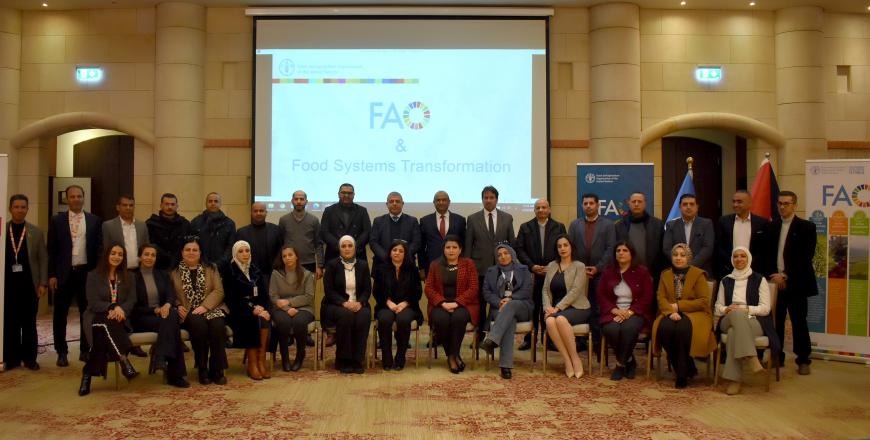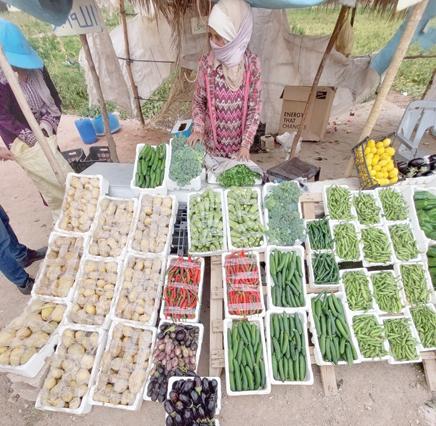You are here
Gov't endorses projects to support sustainable agriculture, empower farmers, tackle climate challenges
By Maria Weldali - Apr 13,2025 - Last updated at Apr 13,2025

The Cabinet on Sunday approves two key development projects in an effort to bolster Jordan’s agricultural sector and support farmers amid mounting market challenges (JT file)
AMMAN — In an effort to bolster Jordan’s agricultural sector and support farmers amid mounting market challenges, the Cabinet on Sunday approved two key development projects during a session chaired by Prime Minister Jafar Hassan.
The first project, titled “Strengthening the Agricultural Sector in Jordan through Capacity Development and Market Access,” is a joint initiative between the Ministry of Agriculture and the UN Food and Agriculture Organization (FAO). It aims to enhance farmers’ skills through sustainable agricultural practices and increase their access to local and regional markets, particularly via agricultural exhibitions.
The project also focuses on providing farmers with the tools needed to improve yields and adopt environmentally friendly farming methods.
The Cabinet also endorsed a second agreement between the Agricultural Credit Corporation and the World Food Programme (WFP) under the 2025–2027 Jordan Country Strategic Plan. The initiative, “Enhancing Access to Climate-Resilient Agricultural Finance,” seeks to expand access to agricultural financing and promote climate-smart farming techniques.
“These projects represent a critical step toward addressing structural challenges in the sector, especially by improving financial access and market integration,” said Nuhad Olaimi, President of the Agricultural Engineers Association.
“Stronger partnerships with the private sector and international organisations will open new opportunities for Jordanian farmers to grow and adapt in a changing climate.”
Nour Manaseer, a sustainable agriculture expert, highlighted the projects’ long-term economic impact, noting that expanding market access and financing mechanisms would boost productivity and rural resilience.
“Such programmes can enhance rural economic inclusion and provide income stability for farmers, particularly in light of increasing climate variability,” she said.
Related Articles
AMMAN — Minister of Agriculture Khaled Hneifat, announced on Wednesday the Cabinet's approval of a grant agreement with the Italian governme
AMMAN — The Food and Agriculture Organisation of the United Nations (FAO) in Jordan, in cooperation with the Ministry of Agriculture&nb
JORDAN VALLEY — Jordan's agricultural industry has a significant impact on the country’s water crisis, placing the financial situation of fa













